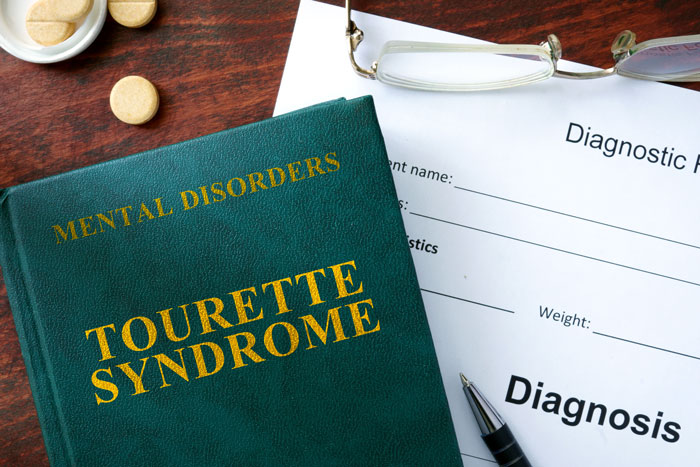Tourette Syndrome
Tourette Syndrome and Tic Disorders
Originally named after the French neurologist Dr. George Gilles de la Tourette, Tourette’s Syndrome (TS) was first described by Dr. Gilles de la Tourette as a series of ‘maldies des tics,’ or disease tics, observed in a group of nine people, including a noble woman aged 86 years. The good doctor, although considered a bit of an experimentalist in his time, published his findings in an 1885 medical journal and founded the condition that today is known as Tourette’s. His observations have become the foundation that underpins a modern day understanding of this complex neurological condition.
Tourette’s syndrome is a neurological disorder that involves repetitive movements or unwanted sounds known as “tics.” For example, someone with Tourette’s might clear their throat repetitively, blink their eyes over and over again, or blurt out words they did not mean to say. It is a common condition with more than 200,000 Americans today demonstrating the signs of full-blown Tourette’s syndrome, and as many as one in every four people suffering from a milder form of the condition.
The first signs of Tourette’s usually appear between the ages of two and fifteen with the average being around six years old. The condition is also three to four times more common in boys than in girls. However, while there is no cure for the disorder, many symptoms become more controllable after teen years, and in some instances, may be outgrown altogether.
Tics can come in many forms including motor tics which are defined by visible muscle movements, and vocal tics, which have to do with making sounds or blurting out words. Tics can range from mild to severe but are typically classified in two categories. Simple tics are sudden, brief, repetitive tics that only affect a small group of muscles. For example, shoulder shrugging, eye darting, eye blinking, nose twitching, mouth movements, and head movements are all examples of common, simple motor tics. Barking, coughing, grunting, and throat clearing, are examples of other types of simple, vocal tics.
Complex tics are defined as coordinated patterns of movement which involve a larger group of muscles. For example, stepping in a particular pattern, obscene gesturing, bending, twisting, hopping, or consistently smelling objects are examples of common, complex motor tics. Repetition of phrases or words over and over again, or using vulgar, profane curse words, are additional examples of complex vocal tics.
Tourette’s has been linked to the part of the brain that helps control muscle movements. Research has suggested that differences in how these areas function may cause changes in the chemicals and nerve cells that carry messages between the brain and the muscles, potentially causing Tourette’s to develop. But hereditary can also play a role as people who have a family history of Tourette’s are more likely to develop it, although their symptoms may manifest quite differently.
Up to 50% of children who suffer from Tourette’s are also known to have problems with their ability to focus or pay attention. They are often also diagnosed with Attention Deficit Hyper Disorder (ADHD) and other conditions such as Obsessive Compulsive Disorder (OCD), learning disabilities, autism, sleep disorders, anxiety disorders, depression, and anger management problems.
Managing outbursts can be challenging, but is not impossible. Before a vocal tic occurs, you will experience a discomfort and agitation in the body called a premonitory urge. Muscles may begin to itch, tingle or tense and the need to vocalize builds up. This discomfort is usually relieved once the tic is allowed to manifest vocally. Building tension and discomfort are the reasons, despite the “warning signs”, you will find it hard to hold back. When coupled with heightened emotion, such as anger, excitement, or fear these symptoms tend to be exacerbated. Cognitive behavioral therapy techniques are known to help patients manage or prevent these outbursts all together.
Although Tourette’s is not life threatening, it can be socially challenging and result in a lack of confidence or cause significant harm to your self-image. There are a number of different medications that can be prescribed to help you manage the symptoms of Tourette’s, although these are usually only prescribed for the more severe cases. Our team of care providers can help you to determine the best approach to managing your symptoms. More often than not, medication may not be needed, and a care program that combines behavioral and talk therapy can effectively help you to overcome urges and develop techniques to manage or stop them from manifesting.

Make an Appointment
There is no such thing as a one-size-fits all treatment. As such, we work closely with you to understand your unique circumstances and design care programs that fit your individual needs.
Use Telehealth
No matter where you are or what your movement disability may be, telehealth services ensure that we are always connected and able to assist you, 24/7.
